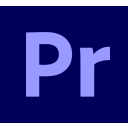Adobe Express vs Canva: Which design tool best suits your needs?
- 01Adobe Express vs Canva: overview
- 02What's the difference between Adobe Express and Canva?
- 03Adobe Express pros and cons
- 04Canva pros and cons
- 05Adobe Express compared to Canva
- 06Canva compared to Adobe Express
- 07Features comparison
- 08Adobe Express vs Canva: Which is the best for your business?
- 09Promotions on Design software
- 10Alternatives to Adobe Express & Canva
Save up to $22 on Adobe Express
Save up to $22 on Adobe Express
Graphic design tools are essential for creating stunning visuals, whether you're a professional designer or a business owner looking to enhance your marketing materials. Two popular options in the graphic design software realm are Adobe Express and Canva. These tools can significantly impact your design projects, and selecting the right one can be a daunting task with so many choices on the market.
But worry not! In this comprehensive article, we will delve into a detailed comparison of Adobe Express vs Canva. We will explore their shared features, unique capabilities, and distinctive advantages, helping you make an informed decision about which graphic design tool aligns best with your specific needs. So, read on to discover the nuances of Adobe Express and Canva and determine which one is the ideal fit for your design projects.
Adobe Express vs Canva: overview
Adobe Express and Canva are prominent players in the world of graphic design software, each offering unique sets of features and advantages tailored to different design requirements.
Adobe Express stands out with its professional-grade design capabilities, providing users with advanced tools and extensive creative freedom. It's an excellent choice for experienced designers and those who require high-level design precision. In contrast, Canva offers a user-friendly, intuitive platform that simplifies design tasks and is accessible to beginners and non-designers.
Now, let's dive into the Adobe Express vs. Canva comparison to help you make an informed decision when selecting the right graphic design software for your specific design projects.
What's the difference between Adobe Express and Canva?


Adobe Express and Canva are both powerful graphic design tools, but they have distinct differences that cater to various design needs and preferences.
One of the key differences between Adobe Express and Canva is the level of design complexity and flexibility they offer. Adobe Express is renowned for its professional-grade design capabilities, making it a preferred choice for experienced designers and individuals who require advanced features, precision, and a wide range of creative tools. It provides in-depth control over design elements, making it suitable for tasks that demand pixel-perfect results, such as print materials, logos, and intricate illustrations.
On the other hand, Canva is celebrated for its user-friendly, intuitive interface, which simplifies the design process and makes it accessible to beginners, non-designers, and businesses seeking quick and visually appealing designs. Canva's extensive library of templates, graphics, and pre-designed elements allows users to create eye-catching social media posts, presentations, and marketing materials with ease. While it may lack the intricate design capabilities of Adobe Express, it excels in delivering efficient and attractive designs for a wide range of purposes.
Another significant difference lies in the pricing models of Adobe Express and Canva. Adobe Express typically operates on a subscription-based model, offering various pricing tiers that grant access to its full suite of design tools and services. In contrast, Canva offers a freemium model, allowing users to access basic design features for free and offering a paid subscription option, Canva Pro, which unlocks additional advanced features and resources. This pricing flexibility makes Canva an attractive choice for budget-conscious users and small businesses.
7-day free trial (available through Adobe Creative Cloud) on Adobe Express
Get 7-day free trial (available through Adobe Creative Cloud) on Adobe Express and up to $22 savings with Secret.
Adobe Express pros and cons
What are the advantages of Adobe Express?
- User-friendly interface: Adobe Express offers an intuitive, easy-to-navigate interface that is accessible to beginners, making it simple to create professional-looking designs without extensive graphic design knowledge.
- Integration with Adobe Creative Cloud: For users who also utilize other Adobe products like Photoshop or Illustrator, Adobe Express integrates smoothly with the Adobe ecosystem, allowing for easy import and export of assets across different Adobe applications.
- Wide range of templates and resources: Adobe Express provides a vast library of templates, stock photos, icons, and fonts, enabling users to create high-quality content quickly and efficiently.
- Cross-platform accessibility: It is available across various platforms, including web browsers and mobile apps, enabling users to work on their projects from anywhere and on any device.
- Regular updates and new features: Adobe frequently updates its applications, adding new features and improving existing ones, ensuring that Adobe Express remains up-to-date with the latest design trends and user needs.
What are the disadvantages of Adobe Express?
- Limited customization in free version: The free version of Adobe Express offers limited customization options compared to the paid version, which can be a drawback for users seeking advanced design capabilities without a subscription.
- Subscription cost for full features: To access the full range of features, users need to subscribe to Adobe Creative Cloud, which can be costly for individuals or small businesses on a tight budget.
- Performance issues on lower-end devices: Some users may experience performance issues or slower load times when using Adobe Express on less powerful devices or with poor internet connectivity.
- Learning curve for advanced features: While the basic features are user-friendly, mastering the more advanced capabilities of Adobe Express may require a learning curve, especially for users not familiar with other Adobe products.
- Limited advanced design capabilities: Compared to more robust Adobe applications like Photoshop or Illustrator, Adobe Express has limitations in terms of advanced design capabilities, which might not be sufficient for highly complex design projects.
Compare Adobe Express to other tools
Canva pros and cons
What are the advantages of Canva?
- User-friendly interface: Canva is known for its intuitive and user-friendly interface, making it accessible to beginners and non-designers.
- Vast template library: Canva offers a vast collection of templates for various design projects, including social media posts, presentations, posters, and more, which saves time and effort.
- Drag-and-drop functionality: The drag-and-drop feature simplifies the design process, allowing users to easily add and arrange elements within their projects.
- Collaboration tools: Canva provides collaboration features, allowing multiple team members to work on the same design project in real-time.
- Affordable pricing: Canva offers a free plan with access to basic design features and a paid subscription option (Canva Pro) with additional advanced features at an affordable price.
What are the disadvantages of Canva?
- Limited advanced features: Canva may lack the advanced capabilities and precision required for complex design tasks, which can be a limitation for professional designers.
- Customization restrictions: While Canva's templates are convenient, they may have limitations in terms of customization, restricting full creative control.
- Watermarked free version: Designs created with the free Canva plan often include watermarks, which can be removed by upgrading to a paid subscription.
- Offline access: Canva primarily operates online, which means you need an internet connection to access and use the platform.
- Limited export formats: Canva's export options may be limited compared to more advanced design software, which could be a drawback for specific design needs.
Compare Canva to other tools
Adobe Express compared to Canva
Adobe Express and Canva are both popular graphic design platforms, but they offer distinct advantages. Adobe Express, known for its professional-grade tools, appeals to experienced designers seeking precision and advanced capabilities. It's ideal for intricate projects like logos and print materials.
Canva, conversely, provides a user-friendly, template-driven approach, making it accessible for beginners and non-designers. It excels at creating quick, visually appealing designs for social media, presentations, and marketing materials. While Adobe Express offers unparalleled design control, Canva prioritizes efficiency and simplicity. Your choice should align with your design expertise and project complexity, ensuring a tailored solution for your needs.
Is Adobe Express better than Canva?
Determining whether Adobe Express is better than Canva depends largely on the user's specific requirements and skill level. Adobe Express caters to those with some design experience, offering a range of sophisticated tools that enable the creation of detailed and customized graphics. It's particularly beneficial for projects where precision and a unique aesthetic are paramount.
On the other hand, Canva's strength lies in its straightforward, intuitive interface, making it a go-to for quick, easy-to-assemble designs, especially for those with limited design background. Ultimately, the decision hinges on whether the user values advanced functionality and customization (Adobe Express) over ease and speed (Canva).
What is Adobe Express best used for?
Adobe Express is best used for professional-level graphic design tasks that demand precision, creativity, and advanced features. It excels in creating logos, print materials, intricate illustrations, and designs requiring pixel-perfect control. Its extensive toolset, including vector graphics, typography, and image manipulation, caters to the needs of experienced designers.
Additionally, Adobe Express offers a range of templates and assets for various design projects, making it versatile for both complex and straightforward tasks. Whether you're crafting branding materials, marketing collateral, or visually stunning illustrations, Adobe Express provides the tools and flexibility needed to bring your creative vision to life with exceptional quality.
Can Adobe Express replace Canva?
Adobe Express and Canva serve different design needs, and while Adobe Express is a robust graphic design software, it may not entirely replace Canva for all users. Adobe Express is ideal for professionals and complex design projects, offering advanced features, precision, and a wide range of creative tools.
Canva, on the other hand, excels in simplicity, accessibility, and quick design solutions, making it perfect for beginners, non-designers, and small businesses. While Adobe Express can handle intricate tasks, Canva's strength lies in its efficiency and ease of use.
Is Adobe Express cheaper than Canva?
Adobe Express and Canva have different pricing models, making it difficult to definitively say that one is cheaper than the other. Adobe Express’s pricing structure typically operates on a subscription-based model, offering various pricing tiers that grant access to its full suite of design tools and services.
Canva, on the other hand, offers a freemium model, allowing users to access basic design features for free and offering a paid subscription option, Canva Pro, which unlocks additional advanced features. The choice between the two in terms of cost depends on your specific needs and whether you prefer a subscription-based model or the flexibility of a freemium offering.
Is there a better Design software than Adobe Express?
While Adobe Express is a well-established graphic design software, it's worth exploring whether there might be a better-suited alternative for your specific design needs.
There are several notable alternatives to Adobe Express in the graphic design software landscape, each catering to different user preferences and project requirements. Some of these alternatives include Canva, Adobe Photoshop, Visme, Affinity Designer, and Sketch.
The choice of graphic design software depends on factors such as your design expertise, project complexity, and desired features. While Adobe Express offers professional-grade tools and precision, other platforms may excel in simplicity, accessibility, or cost-effectiveness. Evaluating your unique requirements will help you determine whether there's a more suitable software than Adobe Express for your design endeavors.
7-day free trial (available through Adobe Creative Cloud) on Adobe Express
Get 7-day free trial (available through Adobe Creative Cloud) on Adobe Express and up to $22 savings with Secret.
Canva compared to Adobe Express
Canva and Adobe Express are both popular graphic design tools, each with distinct advantages. Canva excels in user-friendliness and accessibility, making it a top choice for beginners and non-designers. It offers an extensive library of templates and pre-designed elements, simplifying the creation of visually appealing designs for various purposes, from social media posts to marketing materials.
Adobe Express, on the other hand, targets professionals and experienced designers with its advanced features, precise control, and versatile design capabilities. It's ideal for complex projects like logos and print materials. The choice between Canva and Adobe Express depends on your design expertise and project requirements.
Is Canva better than Adobe Express?
Choosing between Canva and Adobe Express depends on one's specific design needs and expertise level. Canva's appeal lies in its simplicity and ease of use, making it a preferred option for those without extensive design experience. Its straightforward, drag-and-drop interface, coupled with a vast array of templates and design elements, facilitates quick creation of attractive designs, particularly for social media or marketing content.
In contrast, Adobe Express caters to users seeking more advanced functionality and customization options, which are essential for complex and nuanced graphic design projects. If speed and user-friendliness are priorities, Canva often emerges as the better choice over the more professional-oriented Adobe Express.
What is Canva best used for?
Canva is best used for creating visually appealing designs quickly and efficiently. It excels in simplifying design tasks, making it accessible to beginners, non-designers, and small businesses. With a vast library of templates, graphics, and pre-designed elements, Canva is ideal for crafting social media posts, presentations, marketing materials, and various visual content.
Its user-friendly interface and intuitive drag-and-drop functionality enable users to produce eye-catching designs without the need for advanced design skills. Canva's strength lies in its efficiency and versatility, making it a valuable tool for individuals and organizations looking to create stunning visuals for a wide range of purposes with ease.
Can Canva replace Adobe Express?
Canva and Adobe Express serve different design needs, and whether one can replace the other depends on your specific requirements. Canva is excellent for quick and user-friendly design tasks, making it suitable for beginners, non-designers, and those seeking efficient, visually appealing creations.
In contrast, Adobe Express offers professional-grade design tools, precision, and advanced capabilities, making it a preferred choice for experienced designers and complex design projects. While Canva excels in simplicity, Adobe Express provides the depth of control needed for intricate tasks like logos and print materials. The decision to replace one with the other hinges on your design expertise and project complexity.
Is Canva cheaper than Adobe Express?
Canva and Adobe Express have distinct pricing models, making it challenging to definitively determine which is cheaper. Canva’s pricing structure offers a freemium model, allowing users access to basic design features for free, with the option to subscribe to Canva Pro for advanced features.
In contrast, Adobe Express operates on a subscription-based model with various pricing tiers, granting access to its full suite of design tools and services. The choice between the two in terms of cost depends on your specific needs and whether you prefer the flexibility of a freemium offering or require the advanced features of a subscription-based design platform, which can affect the overall cost.
Is there a better Design software than Canva?
While Canva is a popular and user-friendly graphic design tool, it's essential to evaluate whether there might be a better-suited software solution for your specific design requirements.
There are several notable alternatives to Canva in the graphic design software landscape, each catering to different design preferences and project demands. Some prominent alternatives include Adobe Photoshop, CorelDRAW, Affinity Designer, Sketch, and Figma.
The choice of graphic design software depends on factors such as your design expertise, project complexity, and desired features. While Canva excels in simplicity and accessibility, other platforms may offer advanced design capabilities, precision, or specialized tools that align better with your design needs.
Features comparison
Canva Takes the Lead Ahead of Adobe Express in User-Friendly Design

When comparing the ease-of-use between Adobe Express and Canva, Canva clearly holds a significant advantage over Adobe Express. Canva is renowned for its intuitive interface, featuring drag-and-drop functionality that empowers even those with limited design experience to craft polished and professional designs effortlessly. Its self-explanatory dashboard and vast repository of design templates cater to a wide array of design needs, simplifying the process for beginners and those seeking swift results.
On the other hand, while Adobe Express offers an extensive suite of design tools, its interface tends to be more intricate and may pose challenges, particularly for individuals unaccustomed to Adobe's suite of products. As such, in terms of user-friendliness, Canva unequivocally emerges as the preferred choice.
Canva Excels in Social Media and Cloud Integrations, Surpassing Adobe Express's Creative Suite Connectivity

While Adobe Express integrates well within the Adobe ecosystem, Canva shines brighter in its broader, more user-friendly integration capabilities. Unlike Adobe Express, Canva's strength lies in its seamless connections with major social media platforms like Facebook, Twitter, and Pinterest. This facilitates direct publishing and sharing of designs, crucial for social media managers and digital marketers.
Additionally, Canva's compatibility with popular cloud storage services such as Google Drive enhances its functionality, making it an ideal choice for teams needing efficient design storage and sharing solutions. Canva further broadens its appeal by integrating with various stock image libraries, offering an extensive range of creative assets, thereby positioning itself as the superior tool for those valuing versatile, practical integrations in their design work.
Canva Edges Out Adobe Express with Superior Brand Kit Features for Consistent Design Management

Both Canva and Adobe Express provide branding features, but Canva's brand kit stands out for its comprehensive and user-friendly approach. This feature allows businesses and individuals to store essential brand assets like logos, customized color palettes, and selected fonts in one convenient location.
This centralized hub simplifies the design process, ensuring that every created piece adheres to the brand's visual identity, which is crucial for maintaining a consistent brand image across various platforms and materials. For instance, marketers can quickly access their brand colors and logos while designing social media graphics or promotional materials, streamlining their workflow.
On the other hand, while Adobe Express offers branding presets, Canva's brand kit offers a more holistic and easily navigable solution for effective brand management, particularly beneficial for those managing multiple brand elements across diverse projects.
Adobe Express Surpasses Canva in AI-Enhanced Editing Capabilities

Adobe Express gains a notable advantage over Canva thanks to its AI-enhanced editing prowess. Powered by Adobe Sensei, this cutting-edge technology employs artificial intelligence to optimize creative processes, making design tasks more efficient and sophisticated. For instance, automatic resizing, recoloring, and design suggestions are seamlessly integrated into Adobe Express, allowing users to streamline their workflow and enhance the quality of their designs effortlessly.
This AI-driven innovation positions Adobe Express as a superior choice for those seeking advanced editing features, especially professionals and experienced designers who require precise control and efficiency in their projects. While Canva excels in user-friendliness and simplicity, Adobe Express's AI-enhanced capabilities offer a powerful toolset for users looking to elevate their design game.
Canva Outshines Adobe Express with User-Friendly and Versatile Image Editing Tools

When it comes to image editing tools, Canva gains a significant edge over Adobe Express, offering a versatile array of tools and features to enhance images. Users can harness Canva's comprehensive suite of editing options, including cropping, resizing, applying filters, and making precise adjustments to brightness and contrast. This level of control over image manipulation empowers users to fine-tune their photos with ease, making it a major draw for a wide range of users, from social media enthusiasts to marketing professionals.
While Adobe Express boasts a robust set of design capabilities, including intricate image editing tools, Canva's user-friendly approach and accessible image enhancement features provide a straightforward solution for those seeking to perfect their visuals without the need for advanced design skills.
Adobe Express and Canva Enhance Team Creativity with Robust Collaboration Features

Adobe Express and Canva offer robust collaboration features, facilitating real-time teamwork and ensuring consistency in creative endeavors. These tools empower teams to collaborate seamlessly, regardless of the chosen platform.
Adobe Express's collaborative capabilities include Adobe Creative Cloud integration, enabling team members to share and co-edit projects effortlessly. With Adobe's cloud-based ecosystem, designers can work together in real-time, ensuring project coherence and efficient collaboration. Moreover, Adobe Express offers review and commenting features, streamlining feedback and revisions within the design process.
Canva, similarly, offers collaborative functionalities, allowing users to share and collaborate on designs with ease. Team members can simultaneously work on projects, making real-time changes and ensuring alignment across creative projects.
Adobe Express Outperforms Canva with Advanced Tools for Crafting and Editing Video Stories

Adobe Express takes a notable lead over Canva by offering a suite of intuitive tools for crafting and editing video stories. Adobe Express allows users to seamlessly integrate music, text, and animations into their videos, providing a comprehensive solution for creating engaging video content.
For instance, Adobe Express offers video templates, which users can customize with text overlays, transitions, and music tracks, resulting in captivating video narratives. The ability to add animations and visual effects further enhances the storytelling potential of Adobe Express.
In contrast, while Canva excels in various design aspects, it currently lacks a comparable feature for crafting and editing video stories within its platform.
Subscribe to our newsletters.
No FOMO here. Stay up-to-date on all the latest deals and news with our monthly newsletter straight to your inbox like 126,000+ entrepreneurs (+ Get 10% off on on our Premium Membership!)
Adobe Express vs Canva: Which is the best for your business?
Adobe Express is the best tool for you if:
- You're deeply integrated into the Adobe Creative Cloud ecosystem and require seamless compatibility with other Adobe products like Photoshop and Illustrator for advanced design work.
- You value AI-driven design enhancements, as Adobe Express utilizes Adobe Sensei to offer features like automatic resizing and design suggestions, elevating your creative process.
- Professional-grade design capabilities are essential for your work, especially if you're tackling intricate projects like logo design or detailed print materials requiring precise control.
- You prefer a cloud-based platform that offers real-time collaboration with team members, ensuring efficient workflow and consistency in creative projects across the Adobe suite.
- Advanced video editing and storytelling are key components of your projects, as Adobe Express provides superior tools for integrating music, text, and animations into engaging video content.
Canva is the best tool for you if:
- You prioritize a user-friendly interface and a shorter learning curve, making it ideal for beginners or those requiring quick, visually appealing designs without advanced design skills.
- Extensive, ready-to-use templates and a vast library of graphics are crucial for your projects, offering a plethora of options for social media, presentations, and marketing materials.
- You're looking for an efficient brand management solution, as Canva's brand kit allows for the easy organization and application of brand-specific elements like logos, colors, and fonts.
- Collaboration with team members in a straightforward, accessible platform is essential, enabling real-time design edits and ensuring consistency across your marketing or social media campaigns.
- You need a cost-effective design tool with a generous free version, offering significant capabilities without the requirement of a subscription, ideal for small businesses or individual use.
7-day free trial (available through Adobe Creative Cloud) on Adobe Express
Get 7-day free trial (available through Adobe Creative Cloud) on Adobe Express and up to $22 savings with Secret.
Alternatives to Adobe Express & Canva
Promotions on Design software
Start saving on the best SaaS with Secret.
Secret has already helped tens of thousands of startups save millions on the best SaaS like Adobe Express, Canva & many more. Join Secret now to buy software the smart way.














